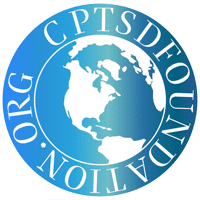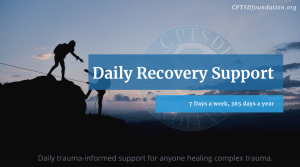This series has focused on post-traumatic stress disorder (PTSD) and how it affects those who live with its symptoms. PTSD is, as we have seen, a life-altering disorder that changes the direction of many people’s lives.
In this article, we shall focus on healing strategies and the hope that one can find life despite having post-traumatic stress disorder.
A Quick Recap of Post-Traumatic Stress Disorder

Scary and dangerous events cause most humans to feel fear, and this fright sets off a cascade of chemical reactions in the body that readies it for the fight/flight/freeze response. Everyone who encounters a fearful event where they felt temporarily out of control will experience PTSD for a short time.
However, PTSD can become chronic in those who experience an event such as a traffic accident, sexual assault, or witnessing a violent crime. These folks cannot quickly recover from the trauma they faced and are diagnosed with post-traumatic stress disorder.
To recap, the symptoms of post-traumatic stress disorder are as follows:
- spontaneous or involuntary, and intrusive distressing memories of the traumatic events
- recurrent distressing dreams
- flashbacks or other dissociative reactions
- intense or prolonged psychological distress at exposure to triggers
- physiological reactions to reminders of the traumatic events
- persistent avoidance of distressing memories, thoughts, or feelings
- inability to remember an essential aspect of the traumatic events
- persistent and exaggerated negative beliefs or expectations about oneself,
- persistent, distorted blame of self or others
- persistent fear
- chronic guilt
- chronic shame
- markedly diminished interest in significant activities
- feelings of detachment or estrangement from others
- persistent inability to experience positive emotions
- aggressive behavior
- reckless or self-destructive behavior
- hypervigilance
- an exaggerated startle response
- problems concentration
- clinically significant distress or impairment in social, occupational, or other critical areas of functioning
It matters little whether one gets PTSD from being a soldier in a war or from a personal tragedy; the results are the same; long-lasting and life-altering changes to the person’s psyche.
There are ways to overcome the changes caused by PTSD, and we shall examine two of the areas that need to be addressed in PTSD healing, the physical and emotional impacts it has on one’s life.
Physical Coping Strategies

While there is no apparent cure for PTSD, the following strategies can help to alleviate some of the most severe physical symptoms. These strategies are meant to calm the mind and to get the body moving.
Get outdoors. Enjoy the fresh air and reconnect with nature. Take short or long walks and listen to the birds and insects or if your walk is in winter, enjoy the silence.
Exercise. Research has shown that exercise helps our brain to cope better with stress. “Aerobic exercises, including jogging, swimming, cycling, walking, gardening, and dancing, have been proved to reduce anxiety and depression” (Sharma & Petty, 2006) (Guszkowska, 2004).
No matter what form of exercise you choose, keep some things in mind:
- Make sure it is an activity you will enjoy
- Set small goals for yourself that you can reach
- List to music while you exercise to boost its relaxation
- Be consistent with your exercising
- Be patient with yourself
- Make sure to dress for whatever weather your area is having at the moment
- Drink plenty of water while exercising
Overall, enjoy yourself and do not make exercise a chore. The benefits to your mind will become noticeable almost immediately.
Work. Although people with PTSD tend to work less efficiently and miss more time at work, working is vital to help one feel better about yourself.
There are a few hints to help one navigate the challenges you may encounter while going to work with PTSD.
- Rearrange your workspace in a way that you feel safer
- Ask for flexible scheduling
- Take moments to regroup when you feel overwhelmed
- Talk to your employer about Employee Assistance Programs (EAPS) that can help you negotiate the hours you will work and methods to reduce distractions at work
Emotional Coping Strategies

If you examine the list of symptoms above, you will note a myriad of emotional symptoms in post-traumatic stress disorder. There are some coping strategies to help mitigate the emotional distress caused by PTSD.
Practice Mindfulness. Mindfulness is a state of mind achieved by focusing on the present moment while calmly acknowledging and accepting your feelings, bodily sensations, and thoughts. Mindfulness is a vital tool in healing the effects of PTSD. Finding time for prayer and meditation helps to calm the body and the mind.
Beginning with one or two minutes a day of quietness can make one feel victorious over the stress and anxiety of post-traumatic stress disorder. Gradually add more time to achieve the most significant benefit from this emotional coping strategy.
The beauty of mindfulness is that it can be done anywhere and anytime, so when you feel stressed or overwhelmed, practice some mindfulness.
Practice Grounding Techniques. Grounding techniques are ways of coping that “ground” you in the present moment. By practicing grounding techniques, one can retain their connection to the present and reduce the likelihood of slipping into a PTSD flashback or dissociative episode.
You can practice grounding techniques by using the five senses (touch, smell, sound, sight, and taste) to connect with the now. Below are some techniques you can try.
Touch. Hold a piece of ice in your hand to keep yourself from falling into a flashback. The severe coldness of the ice will become painful, and this feeling will thrust you back and anchor you into the present.
Smell. Smell a strong scent such as peppermint oil or perfume, anything that has a strong scent. Your mind will remain focused on the scent and distract you from a flashback or a moment of dissociation.
Sound. Turn on your favorite music and crank up the volume. The jarring loudness of the music will direct your attention to it, bringing you back into the present moment.
Sight. Look about you and take an inventory connecting the present moment to everything you can see. Count the furniture in the room or the number of ceiling tiles. By taking an inventory of your surroundings, you can stay connected with your present.
Taste. Bite into something sour like lemon and allow the sourness to force you to remain in the present.
Participating in Counseling

While I have been chastised before over my belief in counseling as helpful, it remains one of the most practical and powerful tools to overcome post-traumatic stress disorder and many other mental health distresses.
If you find a good fit, a therapist can do wonders to help overcome the symptoms of PTSD. CPTSD Foundation is acquiring a list of therapists who are trauma-informed and can help with the healing process. Go to the contact us page and fill out the contact sheet and make sure to check that you need help finding a therapist.
Taking with a mental health professional can feel intimidating, but it can be helpful because you will have a trained person to offer support and guidance in your healing journey.
A counselor’s office offers a safe and calm space for your to process your emotions without fear of judgment. Your participation is vital for counseling to work, and you must be honest with your therapist about all aspects of your PTSD experiences.
Pulling It All Together
Post-traumatic stress disorder, as horrific as it can be, is not the end of your life. Yes, you have experienced symptoms such as flashbacks and relationship losses, but that does not mean you cannot go on to live a happy life.
Research continues to find new methods to treat PTSD, and there have been great strides in treatment options.
Physical and mental coping strategies will help you remain grounded in the present and enhance your enjoyment of life.
Above all, as a message from someone who understands, never, ever give up. Your life has been interrupted by circumstances beyond your control, but those happenings do not need to run your life. By following some of the practices listed in this article and exploring more, you can find the peace and contentment that seem to elude you right now.
“PTSD doesn’t make you weak. It makes you a survivor.” ~ DaShanne Stokes
“Hope is not something that you conjure up in your own mind. Hope is an inspiration you get from the people you are around. Hope has to be shown and seen. Hope is something that is developed, that’s learned. You must see the opportunity for hope.” ~ Ravenell Williams, IV
Resources
Guszkowska M., 2004. Effects of exercise on anxiety, depression, and mood. Psychiatr Pol. 38(4):611-20.
Sharma, A., Madaan, V., & Petty, F. D. (2006). Exercise for mental health. Prim Care Companion J Clin Psychiatry, 8(2), 106.

If you or a loved one live in the despair and isolation that comes with complex post-traumatic stress disorder, please, come to us for help. CPTSD Foundation offers a wide range of services, including:
- Daily Calls
- The Healing Book Club
- Support Groups
- Our Blog
- The Trauma-Informed Newsletter
- Daily Encouragement Texts

All our services are reasonably priced, and some are even free. So, to gain more insight into how complex post-traumatic stress disorder is altering your life and how you can overcome it, sign-up; we will be glad to help you. If you cannot afford to pay, go to www.cptsdfoundation.org/scholarship to apply for aid. We only wish to serve you.

My name is Shirley Davis and I am a freelance writer with over 40-years- experience writing short stories and poetry. Living as I do among the corn and bean fields of Illinois (USA), working from home using the Internet has become the best way to communicate with the world. My interests are wide and varied. I love any kind of science and read several research papers per week to satisfy my curiosity. I have earned an Associate Degree in Psychology and enjoy writing books on the subjects that most interest me.



